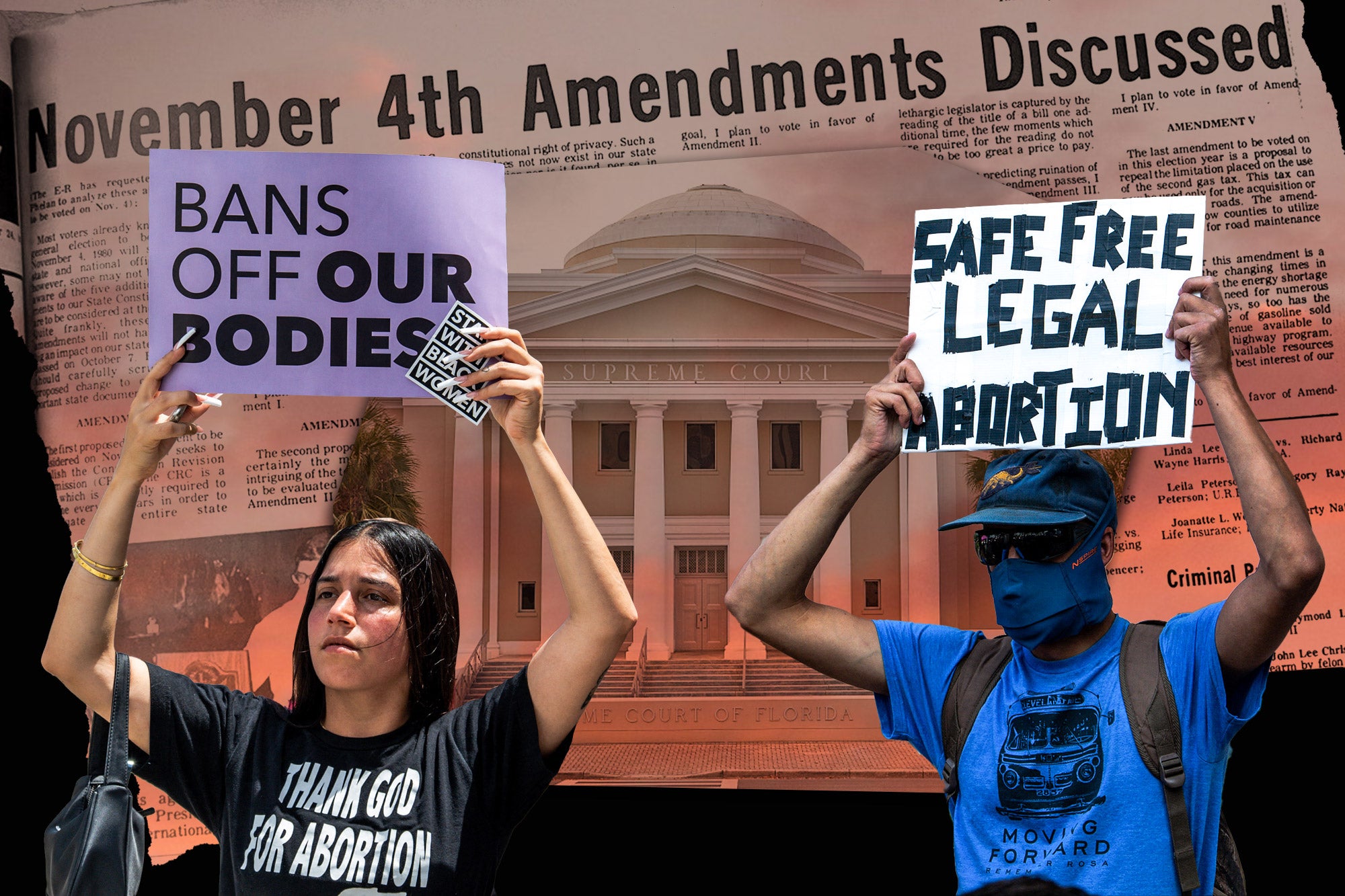Phony Originalism Could Cost Florida Women Their Abortion Rights
Phony Originalism Could Cost Florida Women Their Abortion Rights

A challenge to Florida’s stringent abortion regime is currently before the conservative Supreme Court of Florida. The challenge is based on Florida’s right to privacy. Voters enshrined that right in our constitution in 1980 and, starting with 1989’s case In
re T.W., the court held that the provision protects the right to abortion. The 15-week ban should fail given those authorities, but the state of Florida has asked the court to recede from its precedents. Under public meaning originalism, which conservative judges use to interpret constitutions today, the meaning of a constitutional provision at the time it was adopted controls. So the case has come to revolve around the original public meaning of the privacy right now found in Article I, Section 23 of the Florida Constitution—that is, what Florida voters in 1980 more likely than not would have understood the language of the proposal to mean.
The Supreme Court held oral argument in September 2023, with a majority expressing skepticism that the privacy right encompasses abortion; we should expect a final decision in the next few months. During the argument, multiple conservative justices suggested that the public in 1980 did not understand the amendment to protect abortion, because there is no record of such debate.
But there is historical evidence that public discussion about the amendment acknowledged its potential impact on reproductive rights. That the Florida Supreme Court might declare otherwise reveals a key flaw in originalism: Judges must rely on a historical record that is inevitably incomplete, with gaps in the evidence leading to inaccurate conclusions.
Section 23’s text sweeps broadly. It states, in full:
Every natural person has the right to be let alone and free from governmental intrusion into the person’s private life except as otherwise provided herein. This section shall not be construed to limit the public’s right of access to public records and meetings as provided by law.
The state and its fellow travelers argue that the public understood Section 23 to protect only Floridians’ right to control their personal information (informational privacy) rather than control over personal decision making (decisional privacy), including abortion. They are wrong. In separate law review articles, I and Stetson University law professor James Fox argue that Section 23 was originally understood to protect decisional privacy, including the decision to have an abortion.
